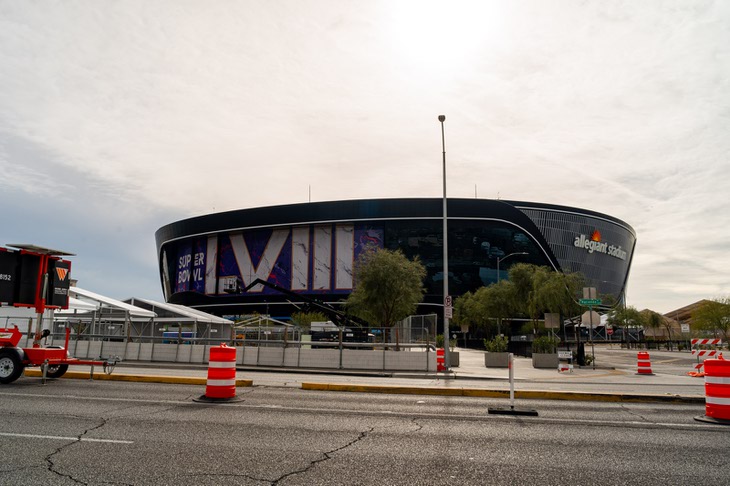About three years ago, as the Las Vegas Convention and Visitors Authority made a bid to host the city’s first Super Bowl—now just days away—it commissioned local analytics firm Applied Analysis to create an economic impact statement on the event.
The report’s findings forecasted that Super Bowl 58 would have a net incremental impact of $799 million on the Las Vegas community, as well as a fiscal impact, or public revenue impact, of $62 million.
“I think it will be measured among the largest, if not the single largest event in Southern Nevada’s history,” Jeremy Aguero, principal analyst for Applied Analysis, told Vegas Inc.
When asked to describe how Applied Analysis conducts an economic impact study like that one, Aguero said the firm takes LVCVA survey data—including that of visitor spending and visitor demographics—and then benchmarks it back to “known values,” or verifiable data, like room-tax data, gaming-tax data and more.
“That is to say, if you tell me that you spend $100 a night on a hotel room—if the average visitor spends $100 a night—we need to multiply that times the number of visitors, and get a sense of whether that’s the right amount of room revenue in the market,” he said.
Analysts then look at the spending profile of people who visit Las Vegas for special events, such as UFC fights, NASCAR or the National Finals Rodeo. That gives them an idea of the difference in spending between traditional leisure travelers, meeting and convention travelers or someone that’s coming for a game like the Super Bowl.
Analysts only count “incremental visitation,” Aguero emphasized.
“If someone says, ‘Well, look, I was in Las Vegas and I decided to go to that UFC fight because I was just in town and I wanted something to do,’ we don’t count that as an impact,” he said. “Because that person was already in town, and maybe they would have spent that money on something else.”
There’s also a secondary impact, he said, which includes supplier purchases: People who are hired locally to help with security, landscaping or anything else related to the Super Bowl.
Between a visitor spending estimate of $515 million and $100 million forecasted for event operations and support, the gross direct spending impact—when the number was first calculated for the report in 2020—totaled $615 million.
Additionally, wages and salaries from the Super Bowl and related activities will trickle down into the community, Aguero said.
“Those workers spend those dollars at doctors’ offices or restaurants or movie theaters or, I guess, anywhere else within the Valley,” he said. “And those are called ‘induced impacts’ associated with that.”
According to the report, the ripple-effect forecast includes the indirect impacts, or vendor purchases, and the induced impact, or employee spending. Those two together total $180 million.
The total impact number for events like the Super Bowl, or the Formula 1 Las Vegas Grand Prix in November, comes from the combination of the direct, indirect and induced impacts, Aguero said, and takes into account a displacement rate—like the impact of people who would typically come to Las Vegas opting not to, because of the Super Bowl hoopla.
Nicholas Irwin, an assistant professor of economics at UNLV, said he believes Las Vegas will not see much of a negative impact from the Super Bowl, especially because the city is so well-equipped to handle big events compared with its peers.
In other Super Bowl host cities, the massive sporting event is oftentimes disruptive to the local community, and some businesses may even become inaccessible because of everything happening around them, Irwin said. In Las Vegas, that’s not much of a concern.
“We’re good at entertainment, and increasingly we’re becoming very good at sports entertainment—we’re marrying the two,” he said. “So we know how to handle a big influx of people. We know how to accommodate them, get them rooms; we know how to feed them and entertain them a lot better than other places do.”
Hindsight is always 20/20, Aguero said in regard to whether the forecasted economic impact may come in over or under the actual number. Luckily, both fiscally and economically, the tendency is for projects to outperform expectations, Aguero said, and he thinks Super Bowl 58 will, too.
